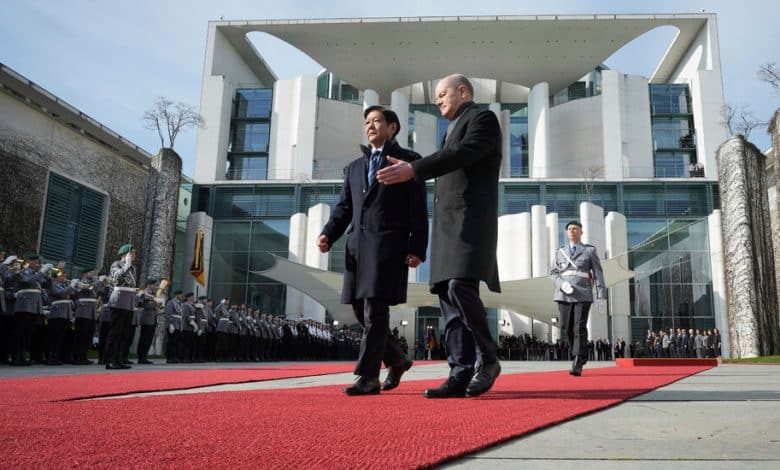Standing Up to China, Philippine Leader Courts New Network of Partners

With China aggressively asserting its claims on the South China Sea, President Ferdinand R. Marcos Jr. of the Philippines spent his first year on the job beefing up Manila’s alliance with its oldest ally, the United States. Now he is shoring up support from a wider and new network of partners.
Mr. Marcos is adding a new intensity to his muscular foreign policy at a critical moment in his country’s territorial dispute with Beijing. Maritime clashes between Chinese and Philippine vessels have become more frequent in recent months.
In January, Mr. Marcos and the leaders of Vietnam, another country fighting off Chinese claims to the crucial waterway, pledged closer cooperation between their coast guards. This month, Mr. Marcos clinched a maritime cooperation deal with Australia. And this past week, he took his pitch to Europe.
“It has to be recognized that the South China Sea handles 60 percent of the trade of the entire world. So, it’s not solely the interest of the Philippines, or of ASEAN, or of the Indo-Pacific region, but the entire world,” Mr. Marcos said on Tuesday in Berlin, referring to the Association of Southeast Asian Nations.
Standing alongside Chancellor Olaf Scholz of Germany, Mr. Marcos, the first Philippine president to visit Germany in a decade, added, “That is why it’s in all our interest to keep it as a safe passage for all international commerce that goes on in the South China Sea.”
This flurry of diplomacy, analysts said, might ultimately help to deter China. But they also acknowledged that Beijing was going to continue doubling down on its territorial claims, increasing the risks of a conflict that could ultimately draw in the United States, the Philippines’ oldest treaty ally. Washington has repeatedly condemned Beijing’s actions and has vowed to come to the aid of Manila in the event of an armed conflict.
